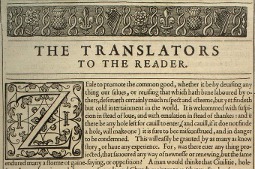 Republished with permission from Theologically Driven. (See also: previous installments in this series.)
Republished with permission from Theologically Driven. (See also: previous installments in this series.)
The Federalist Papers are a series of 85 essays supporting the ratification of the United States Constitution, written by Alexander Hamilton, James Madison, and John Jay. Madison himself is commonly known as the Father of the Constitution. Federal judges, when interpreting the Constitution, frequently appeal to the Federalist Papers as a contemporary account of the intentions of the authors.
In a recent Wall Street Journal article, Peter Berkowitz observes:
Most astonishing and most revealing is the neglect of The Federalist by graduate schools and law schools. The political science departments at Harvard, Yale, Princeton, Stanford and Berkeley—which set the tone for higher education throughout the nation and train many of the next generation’s professors—do not require candidates for the Ph.D. to study The Federalist.
I think there may be a parallel with the Preface to the King James Version, The Translators to the Reader. If one wishes to understand the KJV, the purposes and intents of the translators themselves, the Preface is the authoritative source. And what it reveals is the exact opposite of the claims made for the KJV by those in the KJV-only movement. The KJV-only position argues that only the KJV is the perfect Word of God without any error. It is no wonder, then, that KJV-only advocates purposely avoid the Preface since it is an embarrassment to their false claims.


 Republished with permission from
Republished with permission from 
Discussion